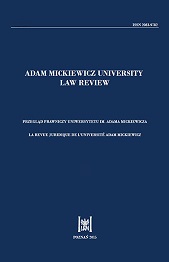Why Legal Reasoning has to be Unique
Why Legal Reasoning has to be Unique
Author(s): Maciej KoszowskiSubject(s): Philosophy of Mind, Philosophy of Law, Cognitive Psychology
Published by: Uniwersytet Adama Mickiewicza
Keywords: law; legal; lawyers; reason; reasoning; thinking; inference; peculiarity; specific; features;
Summary/Abstract: This article addresses the issue of the uniqueness of legal reasoning and, specifically, the author advances the thesis that what makes legal reasoning different from the reasoning employed in demonstrative and empirical sciences and matters of everyday life is not the actual form (scheme) of this reasoning but the legal milieu. Thus, he tries to demonstrate that some features of law – such as its normative and prescriptive nature, difficulties with the verification of its content on empirical grounds, its limitations stemming from the physical world and dependence on humans and their minds, as well as the ‘unspecialized’ character of law agents and the extraordinary role of authority – influence legal reasoning as well. At the same time these features also allow this reasoning to be unique, despite its adoption of forms of inference that are present elsewhere.
Journal: Przegląd Prawniczy Uniwersytetu im. Adama Mickiewicza
- Issue Year: 2017
- Issue No: 7
- Page Range: 325-342
- Page Count: 18
- Language: English

